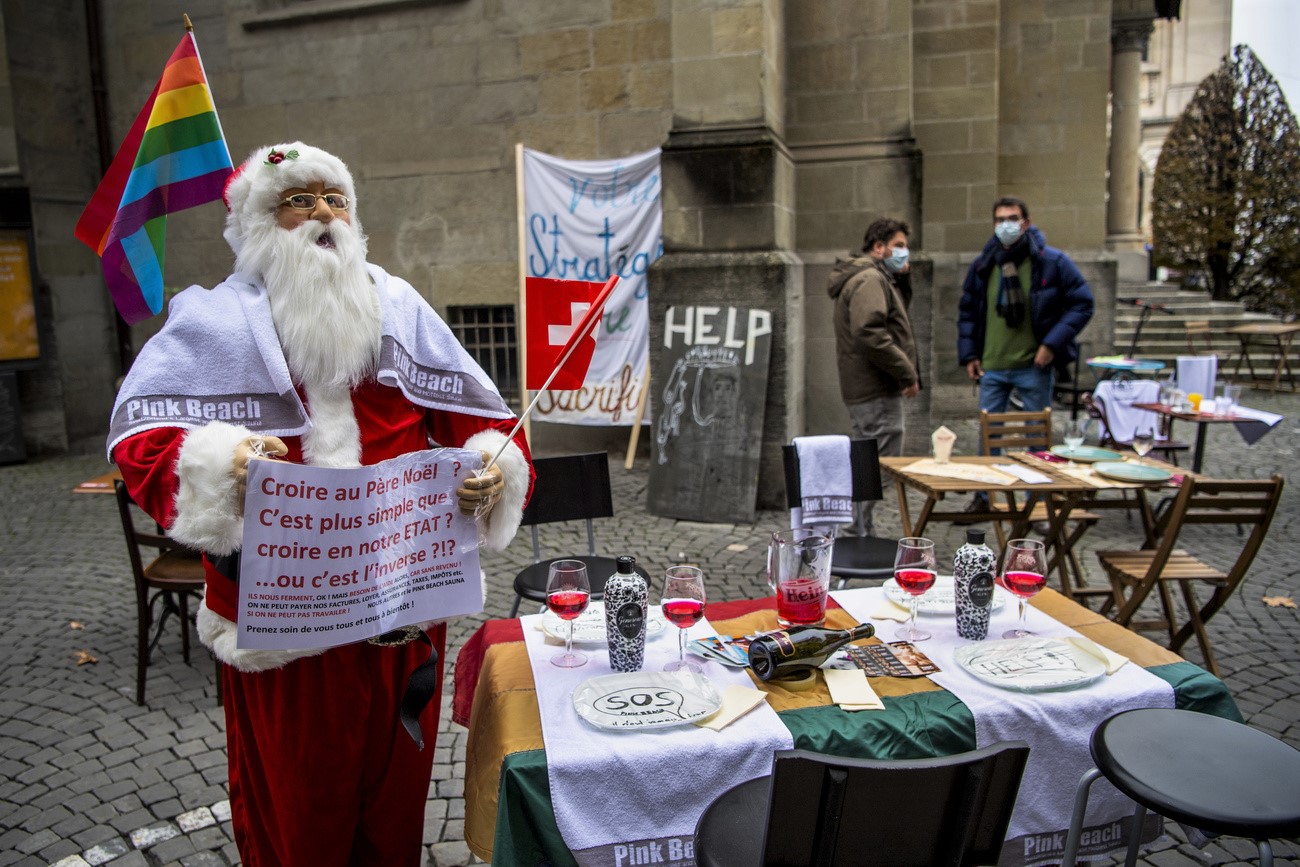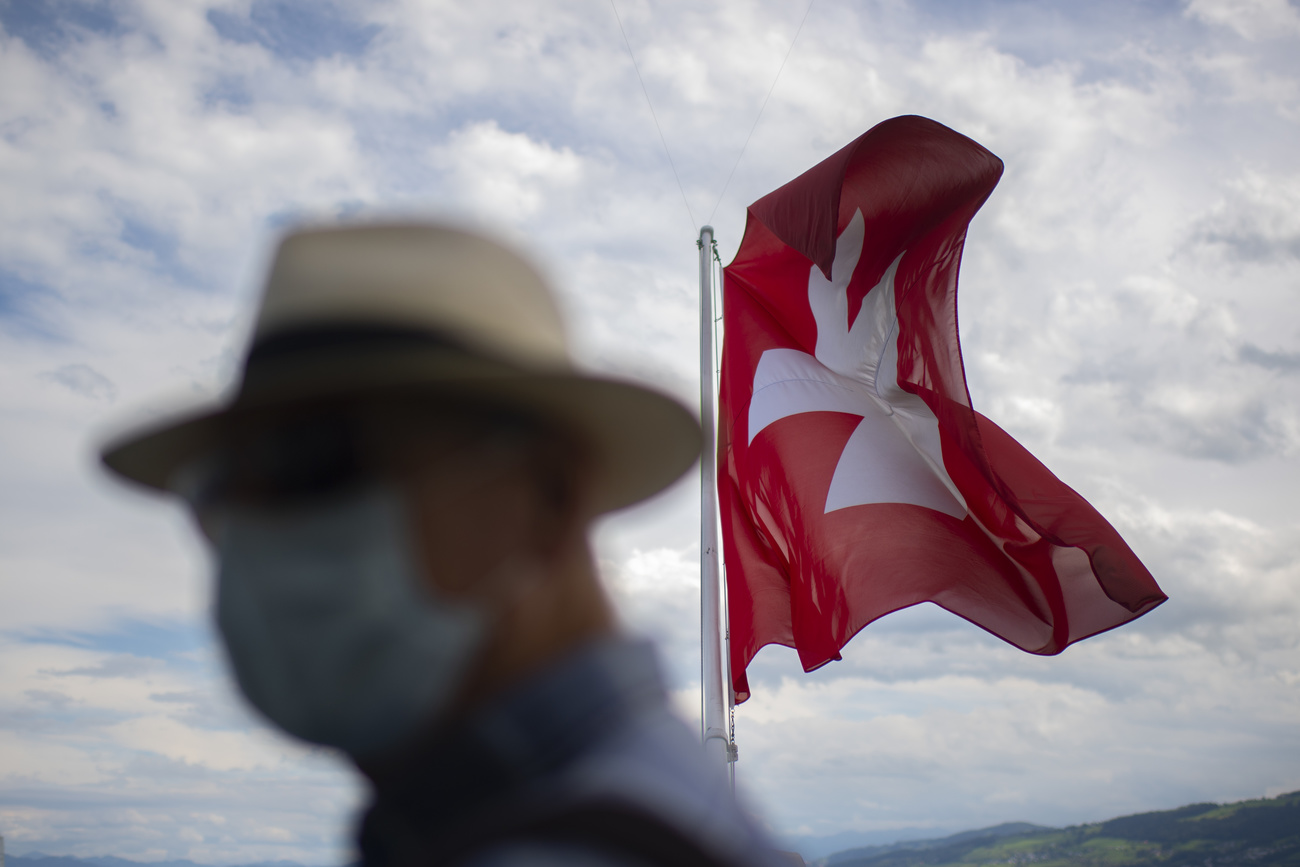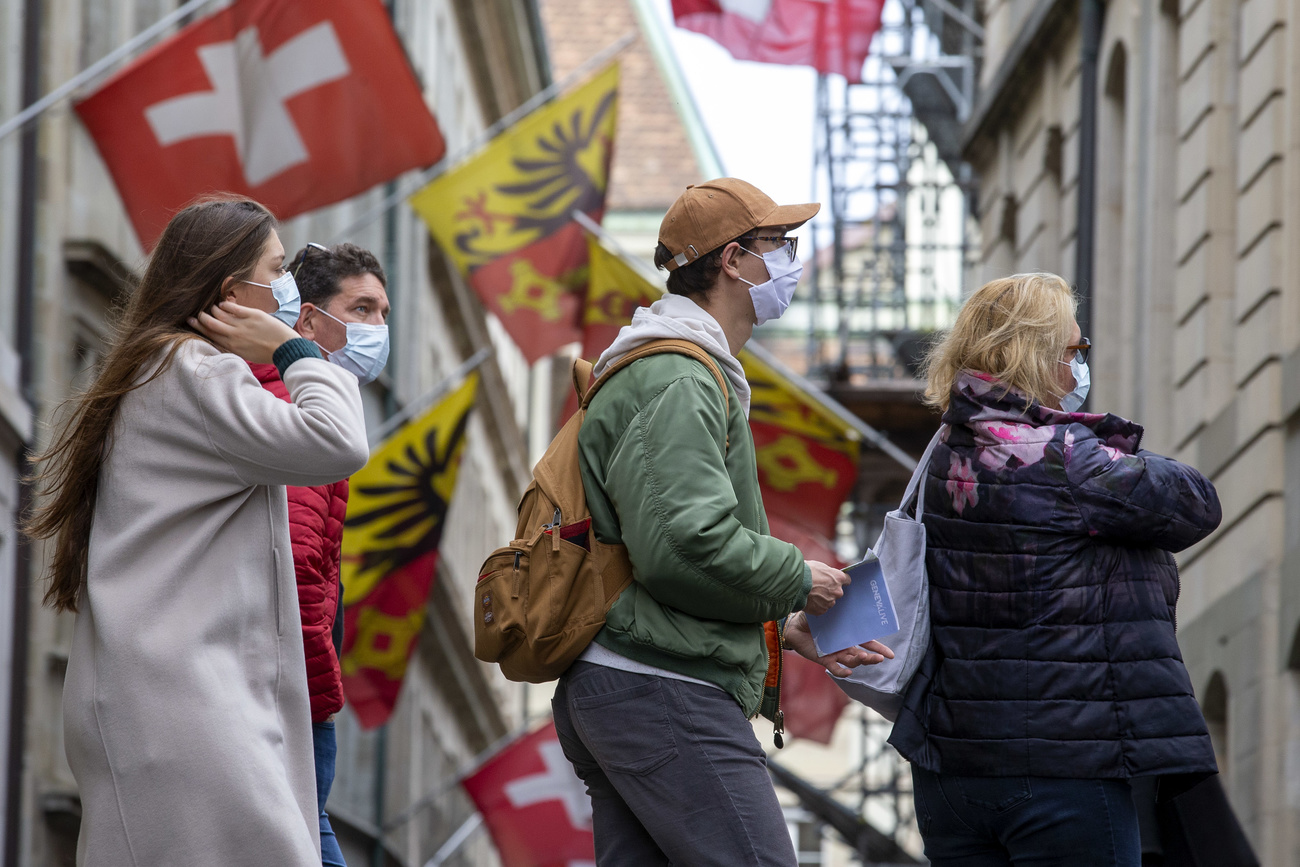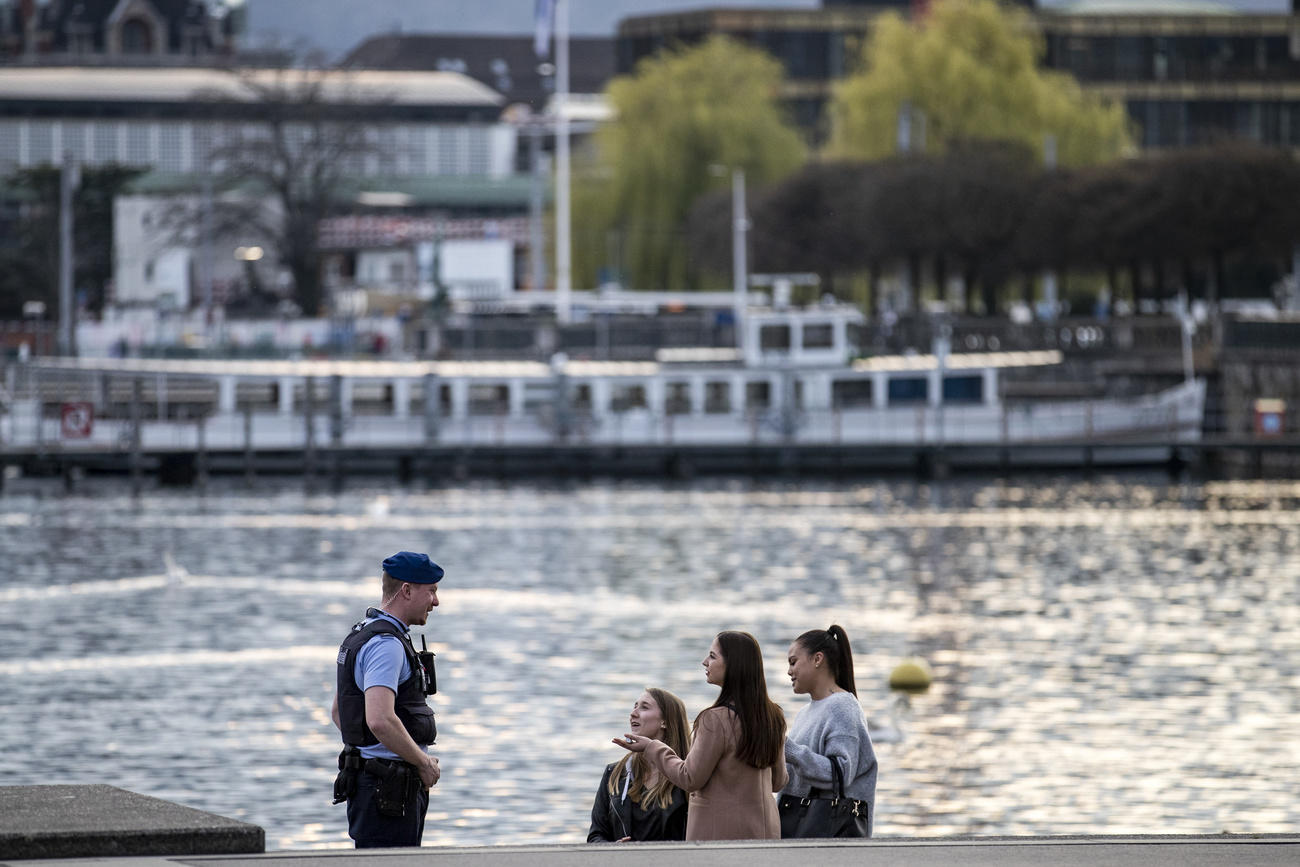How Covid-19 is crash-testing Swiss federalism

Switzerland is one of the countries hardest hit by the second wave of coronavirus and is coming in for increasingly sharp criticism over inconsistencies resulting from its federal system.
Has the Covid-19 crisis revealed the limits of Swiss federalism? Discrepancies between the cantons and communication errors made by the government have come to light for all to see. But unlike in other countries, no independent body has been charged with assessing how the state or the cantons have responded to the crisis.
Residents in one canton can currently travel dozens of kilometres to do some pre-Christmas shopping in another canton where non-essential stores are still open. Instances of migration like this have been observed over the past two weeks in the Lake Geneva region, since Geneva has been more restrictive in its response to the pandemic this autumn than neighbouring canton Vaud.
It’s the same in canton Jura, where inhabitants this year are unable to celebrate the feast of Saint Martin, their culinary pride, after it was cancelled due to the health crisis. Many are sad to see fans of the food-heavy tradition going to satisfy their taste buds in neighbouring canton Bern; many cafes and restaurants in German-speaking cantons remain open.
Introspective report
As the second wave of Covid-19 hit hard in October, Health Minister Alain Berset repeated that in Switzerland “people know that the closing hours for businesses vary from one canton to another. Nothing’s new”. Indeed, since the end of the first wave each canton has been singing from a different hymn sheet.
The Swiss are now openly questioning the lack of consistency within the system. If the sacred union was comprehensively respected in spring during the “extraordinary situation” declared by the government, the union is now fraying a bit and opposition voices are now making themselves heard. People are feeling bewildered by the multitude of measures and recommendations issued around the country.
“Without going so far as declaring a new state of emergency, the government must take back the reigns to curb mobility, [which is] a significant vector of transmission [of the virus],” said Hasim Sancar from the Green Party in Bern. At the end of spring Sancar wrote to cantonal authorities calling for a report on the management of the crisis because “we’re threatened by other pandemics worse than this one”.
Independent oversight in France
French President Emmanuel Macron charged Didier Pittet, an infectious disease specialist and epidemiologist from Geneva, with heading an independent commission to evaluate the health crisis.
The first conclusions were delivered last month. The commission’s report said the French government had “measured the stakes [of the crisis] well” and “no massive or systematic failures” had been made. But the implementation of the response to the crisis had encountered difficulties such as a lack of preparedness, sometimes fraught collaborations between various health agencies and delays in delivering an adequate level of tests.
Ministers and the responsible health authorities were also called before a parliamentary enquiry. In front of television cameras they had to explain failures and notably the lack of protective masks.
Crash test
Would such an independent commission be useful and necessary in Switzerland?
“It’s clear that we must conduct a review, but on the whole federalism has held up well,” said political scientist Andreas Ladner, a specialist in public administration. In Swiss Federalism, his analysis published last year on the organisation of a non-centralised state like Switzerland, Ladner rated Swiss federalism as “generally cooperative, symmetric, competitive and supportive”.
In view of the management of the current crisis, these four objectives would have passed the “crash test”, he believed.
“With the possible exception of the symmetrical aspect, given the fact that the cantons are quite different from one another and have different resources,” he said. But “the level of interactions has functioned quite well between the government, the cantons and the municipalities”.
Hiccups
Ladner believes it would serve little purpose to create an independent commission of enquiry as in France to assess the errors made in Switzerland.
“Create a commission to hear what?” he asked. “It would just rehash simple, banal things that we would have already heard.”
If federalism has generated a few hiccups during Covid, they have mainly been down to poor and contradictory communication, he says.
“Explaining at the beginning of the crisis that protective masks were not necessary didn’t help make things clearer,” Ladner said. “The same thing happened when the government’s Covid task force began to fuel the debate with its own conclusions.”
But compared with other more centralised countries like France, Switzerland is doing quite well today, he concludes. “The Swiss federal system has so far coped well given the circumstances.”

More
Coronavirus: the situation in Switzerland

In compliance with the JTI standards
More: SWI swissinfo.ch certified by the Journalism Trust Initiative




Join the conversation!